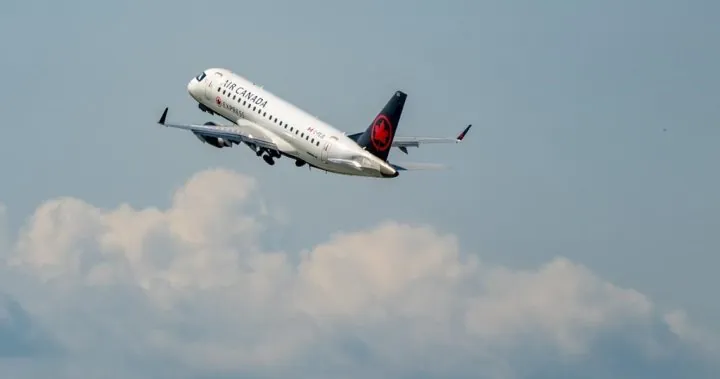
Boeing Announces Massive Job Cuts Amidst Ongoing Challenges
2024-10-11
Author: Jacob
In a significant shake-up, U.S. aerospace giant Boeing is set to eliminate 17,000 jobs, accounting for roughly 10 percent of its global workforce. This drastic decision comes as the company grapples with severe financial repercussions from a month-long strike that halted production across several of its key aircraft lines, including the 737 MAX, 767, and 777 jets. Boeing's CEO, Kelly Ortberg, set the tone for this restructuring in a message to employees, emphasizing the necessity to align workforce levels with the company's current financial situation.
Ortberg highlighted the company's intention to streamline operations by scaling back its workforce to better focus on its strategic priorities moving forward. He confirmed, “These reductions will include executives, managers, and employees across the board.”
The news has already negatively impacted Boeing’s stock market performance, with shares declining by 2.3 percent in after-hours trading, reflecting investor concern over the company's future amidst these sweeping changes.
Adding to the turmoil, Boeing has delayed the first delivery of its much-anticipated 777X jet by an additional year, now expected to occur in 2026. Ortberg indicated that this delay results from ongoing development challenges, a recent pause in flight testing, and the continued work stoppage affecting the company’s operations. The 777X project has faced multiple certification issues that have hampered Boeing's efforts to bring the aircraft to market.
As Boeing moves toward its third-quarter earnings report scheduled for October 23, the financial outlook remains bleak, with expectations of a staggering $17.8 billion in revenue and an estimated loss per share of $9.97. Furthermore, the company anticipates a negative operating cash flow of $1.3 billion.
“No doubt, our business is facing serious short-term hurdles; however, we are committed to strategic decisions that will shape our path forward,” Ortberg asserted in a recent statement.
In a notable development, Boeing plans to conclude the production of its 767 freighter program by 2027 after fulfilling the remaining 29 aircraft orders. Conversely, production for the KC-46A Tanker will continue, showcasing a renewed focus on military contracts despite the challenges faced in the commercial sector.
The urgency to resolve the ongoing strike cannot be overstated. Rating agency S&P has estimated that the work stoppage is costing Boeing approximately $1 billion a month, contributing to the risk of losing its hard-earned investment-grade credit rating.
Even prior to the strike's commencement on September 13, Boeing was already experiencing financial difficulties, exacerbated by a mid-air panel blowout incident in January that raised serious safety concerns and prompted regulatory scrutiny over its production processes.
As Boeing navigates these tumultuous waters, the aerospace community and investors alike will be closely watching how the company manages this crisis and strives for recovery in the coming months. Will these job cuts ultimately stabilize Boeing, or are further setbacks on the horizon? Stay tuned!









 Brasil (PT)
Brasil (PT)
 Canada (EN)
Canada (EN)
 Chile (ES)
Chile (ES)
 España (ES)
España (ES)
 France (FR)
France (FR)
 Hong Kong (EN)
Hong Kong (EN)
 Italia (IT)
Italia (IT)
 日本 (JA)
日本 (JA)
 Magyarország (HU)
Magyarország (HU)
 Norge (NO)
Norge (NO)
 Polska (PL)
Polska (PL)
 Schweiz (DE)
Schweiz (DE)
 Singapore (EN)
Singapore (EN)
 Sverige (SV)
Sverige (SV)
 Suomi (FI)
Suomi (FI)
 Türkiye (TR)
Türkiye (TR)